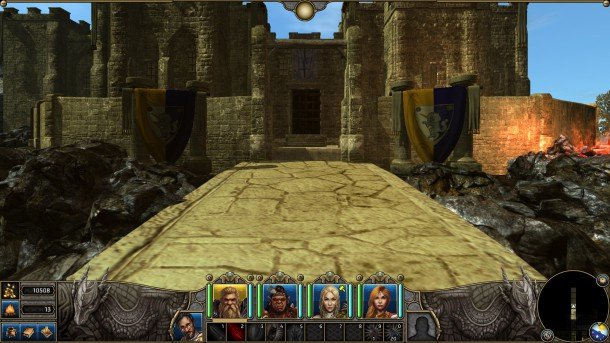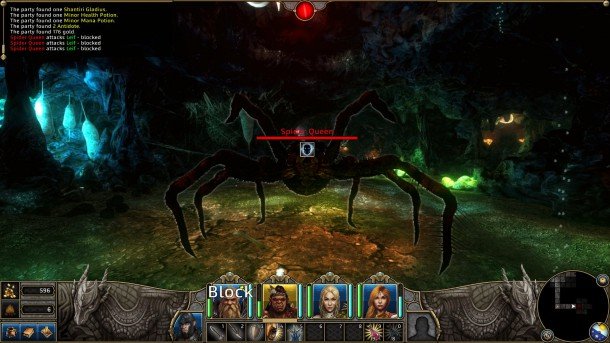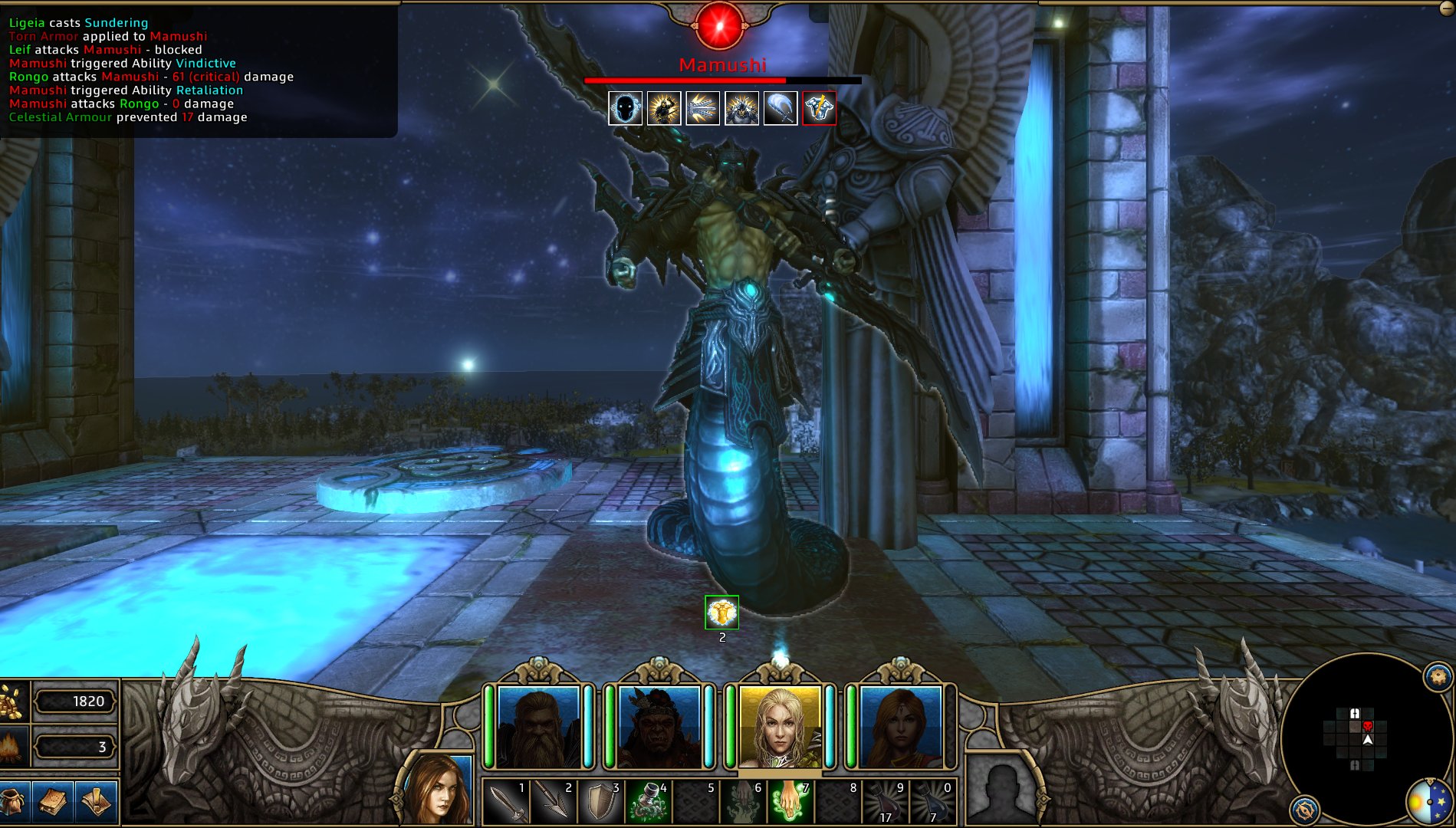Our Verdict
Retro and proud, understanding why these games were fun even if they are in the past.
PC Gamer's got your back
Spiritually, Might and Magic X can be neatly summed up in its first real conversation, when the captain of the first town's guard jokes "Don't worry, I won't send you to go kill rats in a cellar," and then without irony presents a quest called "Spiders In The Well". It's a deliberate and careful throwback to the hack-and-slash RPGs of old, in a style even its own series hasn't done since 1993's Darkside of Xeen - the fifth game, and hardly a cutting edge one even then.
That goes to the core. While Legacy uses the Unity 3D engine and isn't afraid to use it to both create a world and deploy a few special effects, like volumetric lighting, the action remains turn based and locked tight to a grid rather than allowing freeform movement. For the most part though, this works oddly well. Cities and dungeons are carefully designed, looking good and not feeling too much like shoeboxes. There are however regular reminders of why most games of this style stick to cramped dungeons and locations like forest mazes rather than expansive overworlds, the biggest being that ranged characters often aren't allowed to take a pop at an enemy standing right in front of them because officially they're around a corner.

Despite nominally being the tenth game in the series, it's easy to get into the action. No knowledge of the series is required, and despite an intro so astoundingly long and overwritten that it's a wonder that the party doesn't emerge blinking in Might and Magic XI, the story is kept firmly in the background. You're a team of rookie adventurers taking the ashes of your mentor to a locked down city in the middle of a ludicrously dangerous peninsula, in the wake of political reforms that everyone spends far too much time arguing about instead of dealing with all the monsters everywhere. A smarter party might 'accidentally' trip while holding his sodding urn on a windy cliff and go home. But no. Not Heroic enough, apparently.
While even getting close to that town is a slow business, Legacy's actual action is surprisingly pacey. The four-man party primarily levels horizontally, with lots of skills, but plenty of points to spread between them. This quickly allows for a flexible team where a Ranger can be both archer and healer, or a Freemage take up various magical schools without becoming a master of none, with melee characters getting their own 'spells' revolving around skills like taunting and diverting blows. Combat still isn't usually too tactical outside of bosses, where bad luck can also screw the party over in a hurry, but Legacy makes carving through armies feel very satisfying. Luckily too, because while the killing is occasionally interrupted by a trivial puzzle or conversation popping its head into the action, this is firmly a game of 20% exploration, 70% combat, and everything else fighting over the scraps.

What gives Legacy its old school charm though is that as much as it's weighed down by an obviously low budget and the mechanical sacrifices of jumping back a decade, there's a love for its style underpinning the action. The result isn't likely to do much for anyone raised on a diet of The Elder Scrolls, and even at its best is a nostalgia trip rather than call for revolution. Even so, for old-school RPG fans as sad as its creators seem to be that nobody makes games like this any more, it's a solid way to relive the good old days.
Details:
Expect to pay: £20
Release: Out now
Developer: Ubisoft
Publisher: Ubisoft
Multiplayer: No
Retro and proud, understanding why these games were fun even if they are in the past.


